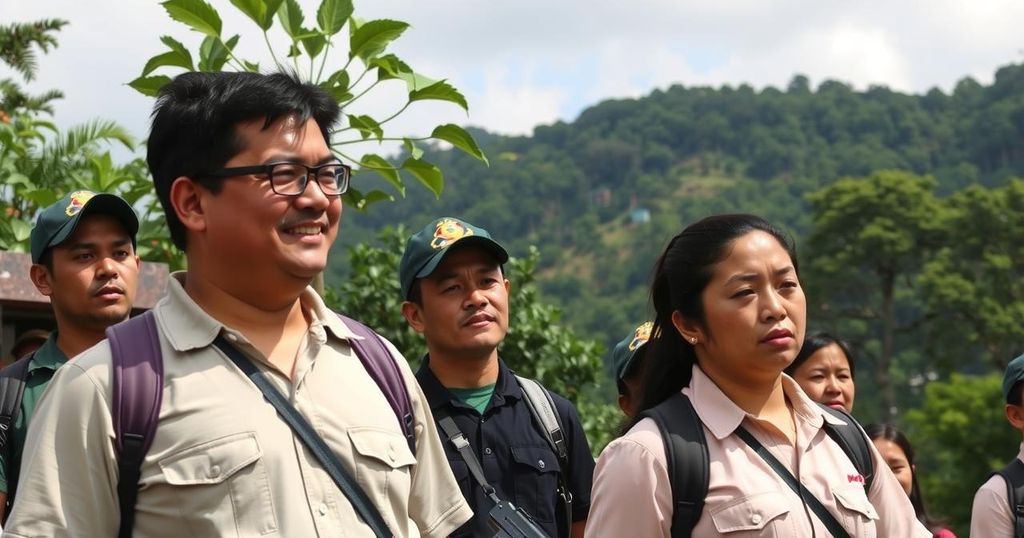Colombia’s JEP has charged six ex-FARC leaders with war crimes for the forced recruitment of 18,677 children, along with associated torture and violence. Current charges highlight abuses against LGBT children, establishing a precedent for recognizing discrimination in conflict. This pivotal legal action aims to address decades of impunity within Colombia’s historical conflict, promoting justice for countless victims.
In a groundbreaking judicial move, Colombia’s Special Jurisdiction for Peace (JEP) has charged six former leaders of the Revolutionary Armed Forces of Colombia (FARC) with war crimes regarding the forced recruitment of 18,677 children between 1971 and 2016. The charges encompass not only forced recruitment but also horrific acts of torture, killings, and especially targeted violence against children based on gender and sexual orientation, marking a significant step in addressing historical injustices in Colombia’s armed conflict.
The JEP, established as part of the 2016 Peace Accords to oversee the trials of serious crimes committed during the long-standing armed conflict, is now tackling the systemic violence inflicted upon children, particularly indigenous youth and LGBT minors. The case, denoted as “Macro-case” 07, focuses on the 9,854 identified victims, shedding light on the pervasive nature of these violations that extend beyond mere military conscription.
Diving deeper into these harrowing charges, the JEP’s Chamber of Recognition of Truth has outlined the ghastly mistreatment faced by these vulnerable children. This historic moment not only identifies the grave reproductive and sexual violence suffered by recruited girls and boys, but also acknowledges the unique prejudice and violence directed towards LGBT youth. This recognition of such specific targeting will resonate through Colombian society, setting a new precedent for justice in the face of discrimination.
Civil society groups, including Colombia Diversa and Caribe Afirmativo, have been crucial advocates for these victims, tirelessly working to ensure that LGBT individuals’ experiences of violence during the conflict are recognized within the transitional justice framework. This recent focus on LGBT-related abuses during the armed conflict, following previous landmark charges, emphasizes a conscientious shift towards inclusivity and acknowledgment in Colombia’s ongoing judicial processes.
These charges symbolize a glimmer of hope in a landscape long marred by impunity, inviting a breath of justice for the countless victims. The JEP now stands at the crossroads, ready to convert these historic charges into tangible accountability, ensuring that those found guilty face suitable repercussions for their acts against humanity.
The ongoing journey of Colombia’s reconciliation and justice efforts has been marked by a complex history of violence and human rights abuses. The signing of the 2016 Peace Accords aimed to end decades of conflict with the FARC, implementing a framework that includes transitional justice measures. The formation of the JEP reflects an essential commitment to hold accountable those responsible for grave violations, particularly the systemic exploitation and violence against children and marginalized communities. With over 18,000 children implicated in the forced recruitment case, the current charges shine a much-needed light on the cruel realities faced by young victims and pave the way for overdue legal consequences.
The recent charges against former FARC leaders present a pivotal moment in Colombia’s pursuit of justice, especially with respect to the rights of children and marginalized communities. This endeavor not only addresses the specific atrocities of child recruitment but recognizes the intersection of gender and sexual identity in this narrative of violence. The unfolding of this case signals an urgent call for accountability and a commitment to ensuring that historical injustices are finally brought to light and rectified. With these steps, Colombia takes concrete strides towards healing and a more equitable future for all its citizens.
Original Source: www.hrw.org



